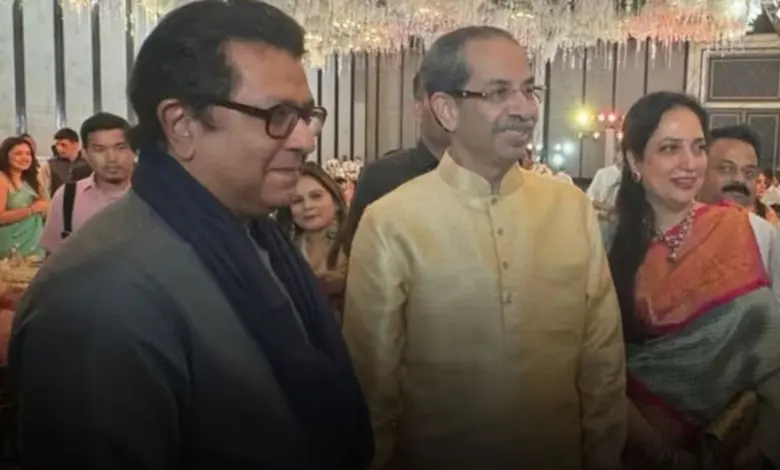Thackeray Cousins Join Forces to Protest Hindi Language Policy in Maharashtra

Mumbai – In a significant political development, estranged cousins Uddhav Thackeray and Raj Thackeray have set aside their differences to lead joint protests against the Maharashtra government’s decision to introduce Hindi as an optional third language in schools. The announcement follows the Devendra Fadnavis-led BJP government’s policy to implement a three-language formula for students in Classes 1 to 5, sparking widespread controversy in the state.
Raj Thackeray, leader of the Maharashtra Navnirman Sena (MNS), has vehemently opposed the inclusion of Hindi as a third language, viewing it as a threat to Marathi culture. Despite a meeting with Education Minister Dada Bhuse and senior education officials at his residence, Raj remained unconvinced by the government’s rationale. Bhuse, speaking to reporters after the discussion, acknowledged Raj’s suggestions but noted that further talks with Chief Minister Fadnavis and deputy chief ministers would be needed to address the issue.
ALSO READ : ‘Whatever People Of Maharashtra Wish…’: Uddhav On Possible Tie-Up With Cousin Raj Thackeray
Uddhav Thackeray, head of Shiv Sena (UBT), echoed his cousin’s concerns, accusing the Fadnavis administration of pushing a divisive agenda. “This is not just about language; it’s about sowing discord and undermining unity,” Uddhav said, emphasizing that his party’s objection is not to Hindi itself but to its imposition as a compulsory subject. He invoked the legacy of his father, Balasaheb Thackeray, stating, “When I was Chief Minister, I ensured Marathi was prioritized, even mandating Marathi signboards for shops. That legacy is being challenged.” Uddhav clarified that Maharashtra has long supported the Hindi film industry, underscoring that the issue lies in the policy’s mandatory nature rather than the language itself.
The protests, planned separately by Shiv Sena (UBT) and MNS, mark a rare moment of unity between the Thackeray cousins, who have been politically estranged for nearly two decades. The decision to collaborate stems from their shared commitment to preserving Marathi identity, with both leaders signaling a willingness to prioritize regional interests over past rivalries.
